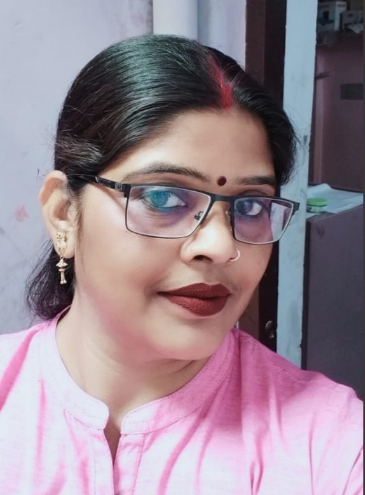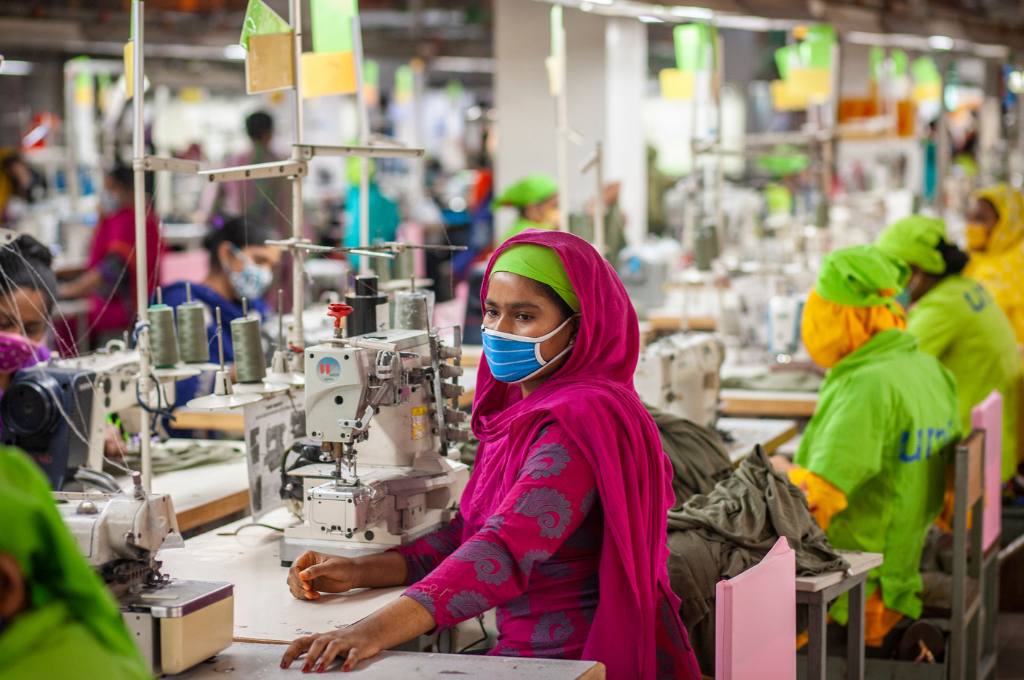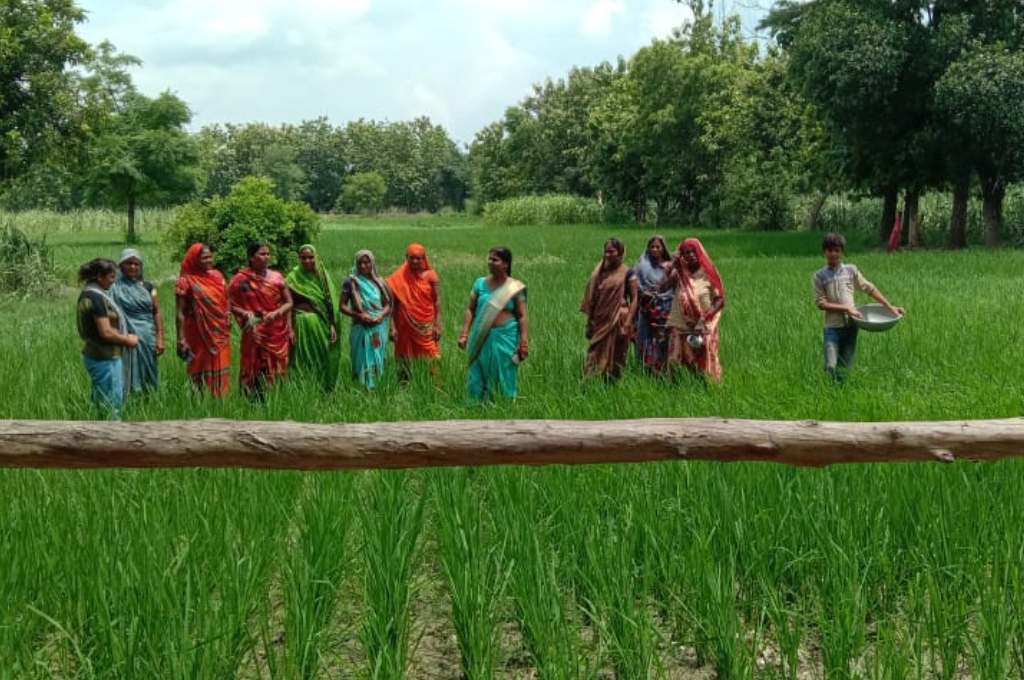I was born in Raswada, a village in Rajasthan’s Alwar district. Including my parents, three sisters, and a brother, we were a family of seven. My parents were in search of better opportunities, and so we shifted to Gurugram, Haryana, when I was eight years old. I completed my schooling there and got married in 2001 at the age of 18.
I now live with my husband, daughter, and son in Alwar. My husband is a daily wage worker—he whitewashes buildings and earns INR 600 per day. Soon after getting married, I realised I would have to work to meet our expenses—we lacked basic facilities such as water and proper sanitation.
Very early in my life, I understood the need for women to create their own identity. I started with working at nonprofits, where I gave jeevan kaushal shiksha (life skills education) to teenage girls to help them learn critical thinking and problem solving in their everyday lives. I realised that to be able to continue in this line of work, I had to study more. So after nine years of marriage, I got a BA and a BEd degree. I am currently a field coordinator and trainer with Ibtada, a nonprofit based in Alwar. My work involves offering career counselling to young women, facilitating their computer education, and conducting sports programmes for them. I also work on Ibtada’s programme for newly married women where I teach them communication skills and make them aware of their nutritional needs, reproductive health, etc. I help them navigate patriarchal spaces too, and aid them in understanding the layered nature of gendered violence and ways to counter it. While my life has informed my work, my experience in the development sector has equally influenced my life.
6.30 AM: By the time I wake up in the morning, my husband is done with yoga and puja, and has already made tea for both of us. Depending on the work required, we divide the chores so that everyone can start their day on time. For example, my husband chops the vegetables, I cook the breakfast, and my son sometimes helps with the laundry and irons the clothes. Then the children get ready for school. When my daughter isn’t going to school, she helps with the cooking. Depending on how busy they are, either my husband or my son cleans my scooter and packs lunch for me.
When my husband fell ill in 2016 and we were left with no source of income, he realised the importance of my contribution to the family.
Things weren’t always this way. For the first 15 years of my marriage, the household chores were solely my responsibility. It was when my husband fell ill in 2016 and we were left with no source of income that he realised the importance of my contribution to the family. I handled the hospital bills and the chores at home, and ran our household alone. This is when he understood that if I can support the family financially, he should help around the house and treat me as an equal. I was earning not just for myself, but for everyone.
We faced resistance from my in-laws. They were against letting me work. When my husband started helping with chores, they chided him and said he dances to my tune. But he held on to his beliefs. I want to see the same change in the households of the newly married young women I work with.
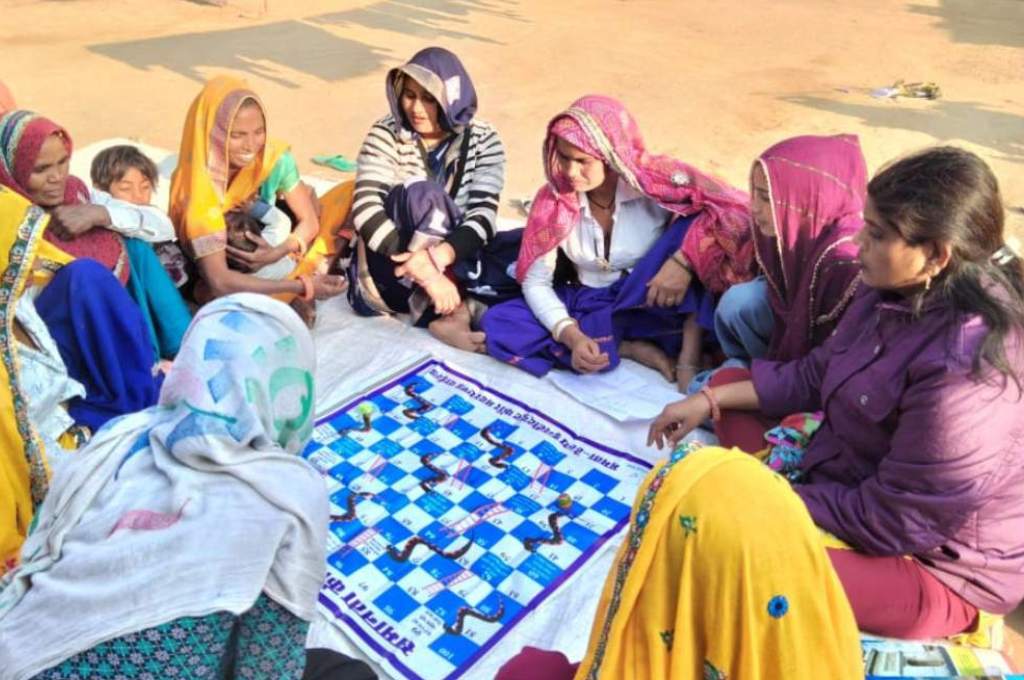
10.00 AM: Once I reach the office, I plan my day at work and conduct meetings with the women in the newly married young women programme. I currently work with four groups consisting of 69 women. Three of these groups were started in May 2023.
It takes a lot of work to convince the women and their families. They need to trust that I’ll be there for them without judgement and that I resonate with the situations they are in. I give examples from my own life to help them realise that I know what they’re going through. I also make them understand that change is a slow process so that they aren’t easily disheartened when patriarchal structures in their homes seem insurmountable. It requires constant communication and small incremental steps for behaviour to change.
I address the issues the women face and offer solutions so they can trust that I’m capable of helping them. For example, in one of the conversations, I asked them what the one common physical phenomenon that women deal with is, to which they correctly responded by saying infections caused by leukorrhea. But they didn’t know why it happens and how to address it. The family doesn’t consult the doctor and the girls are not knowledgeable enough to recognise the symptoms themselves. I teach them how to have conversations with their family members about the various challenges that they face and how to seek treatment when necessary.
I also call joint group meetings of daughters-in-law and mothers-in-law to specifically convince the latter. They are usually the decision-makers in matters concerning their daughters-in-law. I often face resistance from them, and sometimes even from the husbands; they question what I will teach the young women. I calmly listen to everything they say and discuss all issues with them keeping an open mind.
I develop a personal understanding with the women in the newly married programme so they can confide in me about their problems.
The mother-in-law might ask, “What will you teach our daughter-in-law? Why don’t you involve me in your group instead?” I make them see reason by telling them that they’ve already achieved a lot in life. “Your children are married, you’ve worked your entire life, you make decisions around the house, you don’t need the group. It is your daughter-in-law that needs to learn how to manage the house now. She needs to learn how to respect you and not argue or fight with you. Don’t you want her to live happily with you?” I speak to them with thoughtfulness and sensitivity.
This approach convinces them that I won’t teach their daughters-in-law anything that they consider ‘wrong’, but will instead help her pick up skills that can benefit the entire household.
I develop a personal understanding with the women in the group so they can confide in me about their problems. Sometimes they are frustrated with their mother-in-law. The husband and mother-in-law might also complain about the daughter-in-law to me. My work here is not to interfere, but to listen to all of them. I don’t exchange any information as it can create conflict. At times, I play mediator for them. If the husband has a perspective and can explain it, I try to make the wife understand his point of view. That’s how I strike a balance and keep the family’s faith in me.
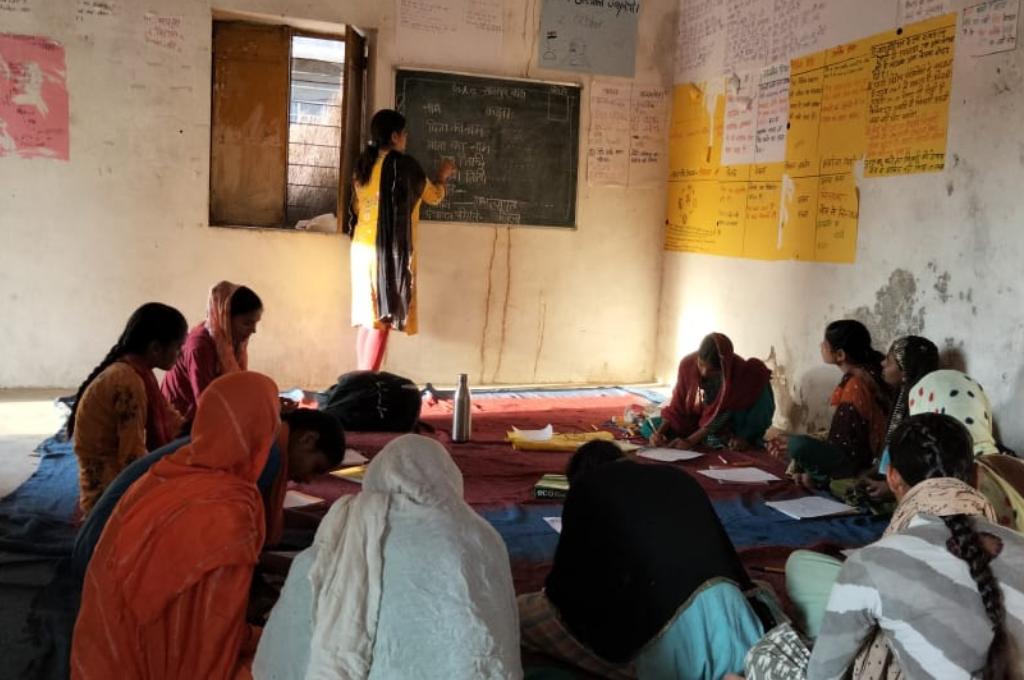
12.00 PM: My afternoons are usually flexible. On some days, I visit the field for skills training. On others, we host orientation meetings for the family members of the women joining us. We introduce them to the organisation and the work we do. To make the family members value the work being done by the newly married girls, we show them videos focused on gender education. For example, the Ghar ki Murgi video attaches monetary value to the work women do and shows that their chores would amount to at least INR 32,000. The idea is to make women’s work visible. It helps the men appreciate their work and even assist them so that the burden doesn’t fall solely on the women.
The family members send the women for training only if they like what they are learning.
After that I have lunch and continue with the rest of the training. If there are regular absentees, I visit their homes to find out the reason for their absence. The family members send the women for training only if they like what they are learning. If anything even mildly challenges the status quo, they stop sending them. I’ve also been accused of misdirecting the women. My job then is to make the women aware of their rights so they can speak for themselves and negotiate with their families. I have explained to them that instead of discussing at home what I tell you, you need to first create your own understanding of things and handle situations in your own way.
At the programme, we also try to broaden the community’s perspective on violence. The general understanding that there is just one type of violence—physical. But women also go through mental, sexual, and economic violence. You are being violent when you verbally abuse someone, make racist remarks, eve-tease, or touch someone without their consent.
I saw my mother suffer through it when I was little. Before my brother was born, my father would threaten to marry another woman because we were four sisters and my father wanted a son. I understood her plight later in life when I also experienced patriarchal oppression.
When you have lived through violence, you cannot just sit and watch someone else suffer. So now if I witness violence anywhere, be it at my home or in my neighbourhood, I raise my voice against it. At home, for instance, I read aloud the paperwork for the cases of the women I am working with so that my family members also learn. This has helped in changing their behaviour.
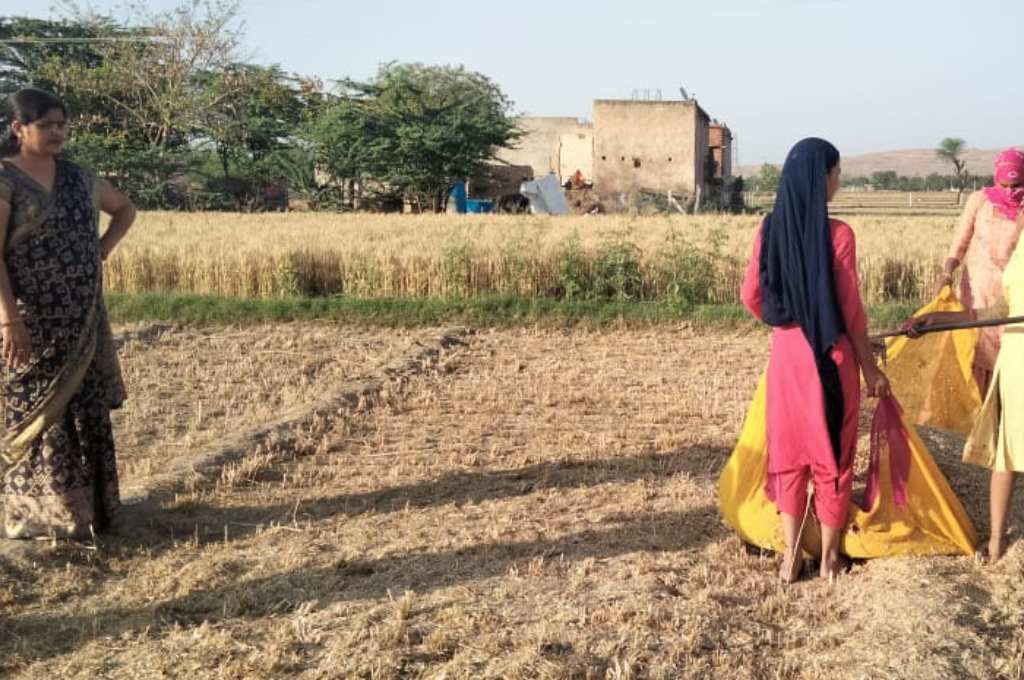
6.30 PM: I return to my house after a long day at work. My daughter and son try to get home before me so that they can prepare dinner. My daughter cooks the vegetables and I make the chapatis. We also decide on who will wash the dishes depending on who is less tired. These chores take up most of our evening. My daughter wants to become a doctor but she’s scared of injections and cries whenever she needs to take one. My son wants to join the Border Security Force because he loves uniforms; I keep asking him to reconsider.
When all our work is done, my daughter and I watch the TV serial Yeh Rishta Kya Kehlata Hai. It captures the happy and sad moments of life. We find it relatable and our day feels incomplete without watching the show. My husband prefers comedy but I like watching such serious shows. I also listen to old songs to relax. I am trying to study computer and want to make time for a course that I have taken up, but I’m usually too tired at this point and go to sleep by 11 or 12 pm.
As told to IDR.
—
Know more
- Read this article to learn how marriage impacts women’s labour participation.
- Read this report to understand why the law continues to protect the perpetrators of marital rape.
- Listen to this podcast to learn about the changing gender norms in India.


